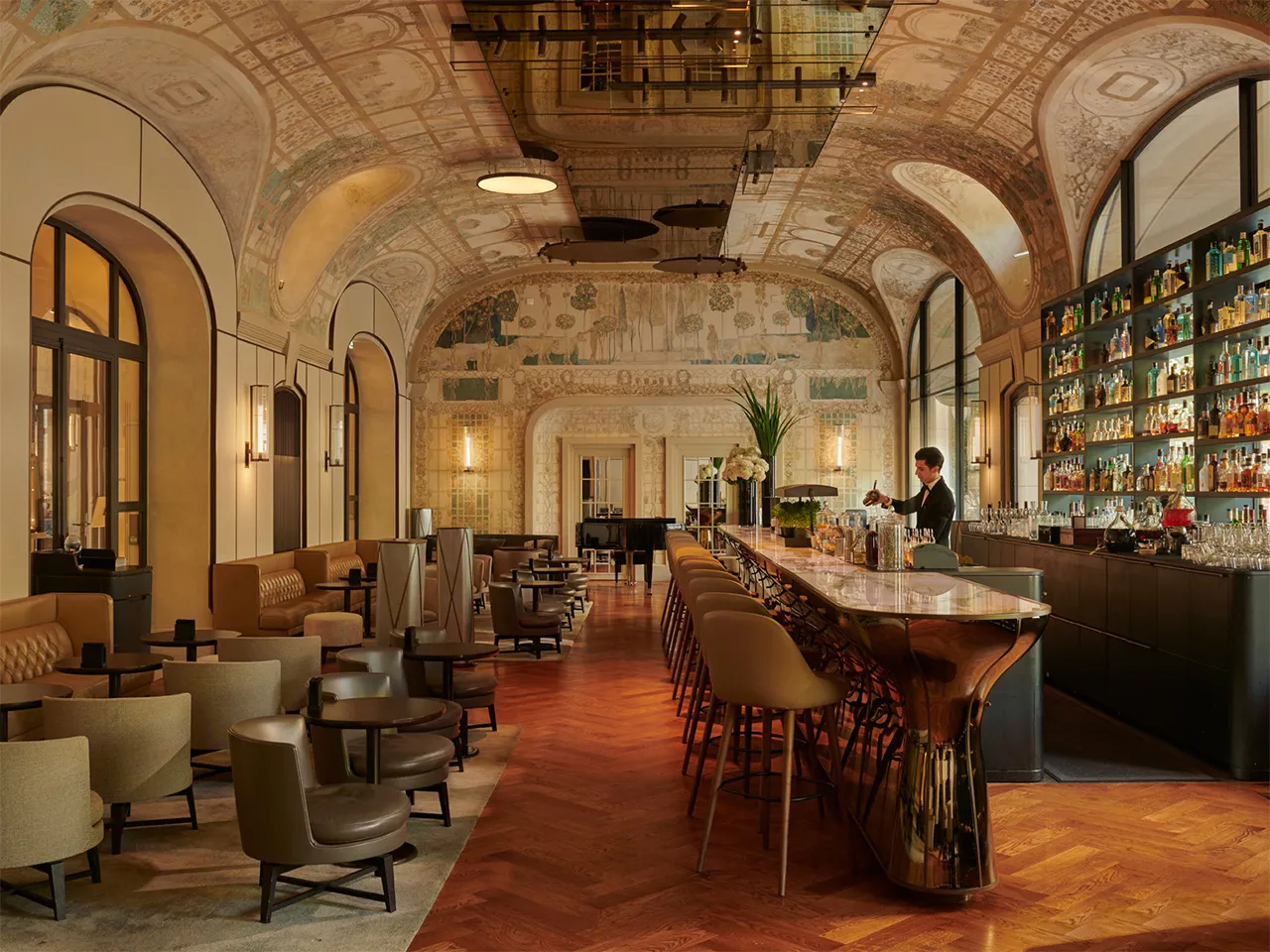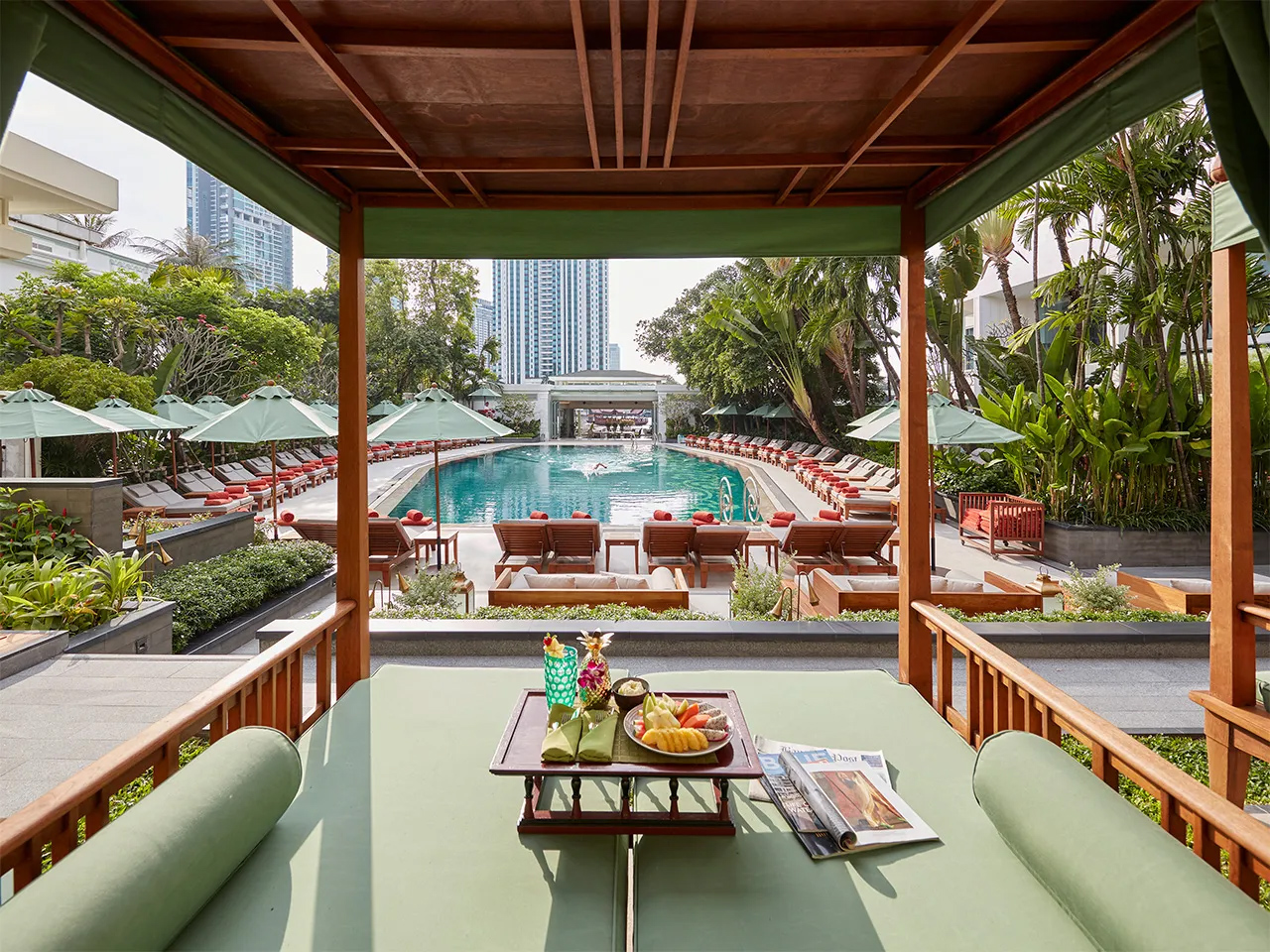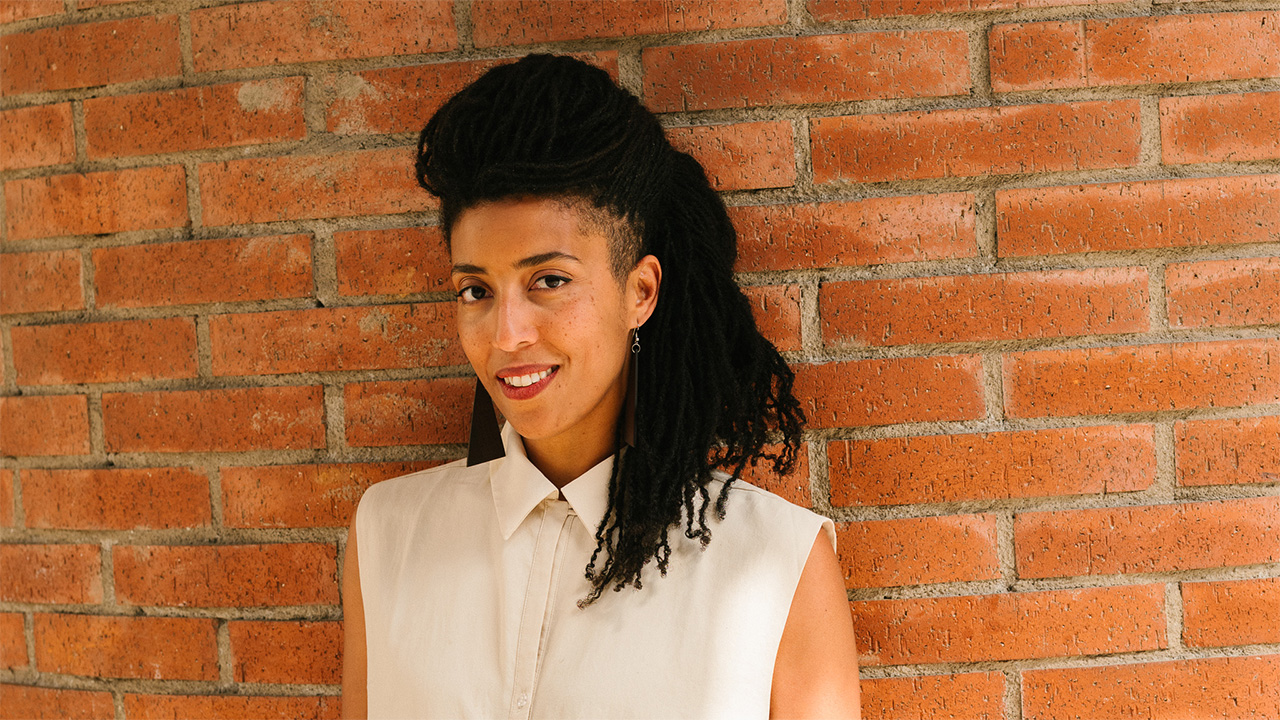The fall of Bolsonaro, Denmark’s US Patriots snub, skincare from Drogerie Meer and the future of luxury hospitality
|
Tuesday 16/9/25
|

|
|
London
Paris
Zürich
Milan
Bangkok
Tokyo
Toronto
|
|
|
|

Good morning from Midori House. For more news and views, tune in to Monocle Radio. Here’s what’s coming up in today’s Monocle Minute:
THE OPINION: The fall of Bolsonaro
IN THE BASKET: Denmark won’t be buying US Patriots
DAILY TREAT: Skincare from Zürich Drogerie Meer
FROM MONOCLE.COM: What’s next for luxury hospitality?
|
|
Lula makes the most of Bolsonaro’s downfall
By Bryan Harris
|

|
The fall of Jair Bolsonaro, Brazil’s mercurial hard-right former president, came gradually and then suddenly. After a steady, years-long drip of revelations about his time in office and months of judicial procedures and hearings, Brazil’s Supreme Court convicted the 70-year-old ex-army captain of plotting a coup d’état and seeking to illegally retain power after his 2022 election defeat. The five-member panel reached a majority verdict and quickly handed down its sentence: 27 years and three months in prison.
The significance of this was lost on no one. Bolsonaro was sentenced alongside several co-conspiring military officers and government officials. His conviction marked the first time that Brazil – a nation that has suffered more than its fair share of coups – had successfully punished the leaders of one of them. In reading their verdicts, the four convicting justices highlighted the vulnerability of democracy and the need to protect institutions against the whims of would-be authoritarians. And that meant dispensing justice, even to the most powerful.

Black mark: Former Brazilian president Jair Bolsonaro
The contrast with the US is clear: whereas America has failed to bring to account a political leader who has chosen to defy democratic rules and norms, Brazil has held firm. On social media, left-wing Brazilians have been revelling in Bolsonaro’s conviction, crowing proudly about the country’s commitment to democracy. On the right, the response has been muted: no mass protests or widespread outrage. Politicians on that side of the spectrum are already plotting what comes next.
The most immediate backlash is likely to come from Donald Trump’s White House. The US president has openly and frequently sympathised with Bolsonaro’s plight and drawn parallels with his own legal strife. As the latter’s trial reached a crescendo in recent weeks, Trump sought to bully Brazil into dropping the case. First, the White House slapped 50 per cent tariffs on the country’s imports. Then it cancelled visas of Brazilian judges and politicians, and hit Alexandre de Moraes – the Supreme Court justice leading the case against Bolsonaro – with Magnitsky Act sanctions. Such sanctions, which freeze De Moraes’s US assets and block him from US financial infrastructure, were once reserved for the world’s worst human-rights offenders. Brazil is now bracing for more.
What happens next to Bolsonaro is less clear. Pending court procedures, his sentence is likely to begin before the end of this year, though it is still undecided whether he will serve it in prison, a federal police facility or in a military barracks, or under house arrest. The man once hailed by supporters as a “messiah” is pinning his hopes on congressional allies passing an amnesty. That would, at the very least, keep him out of prison and, at best, rehabilitate him politically so that he could contest elections next year. Bolsonaro has sought to keep his options open by refusing to name a political heir; if he does name a successor, the decision will be just as significant as that of the courts, showing that he knows his race has been run.
For the incumbent president, Luiz Inácio Lula da Silva, Bolsonaro’s trial (and the unprecedented intervention of Trump in the court proceedings) has been a blessing. Serving a third, non-consecutive term, Lula’s latest stint in power had until recently been uninspiring. But in the face of attacks from the White House, he has managed to cast himself as a defender of national sovereignty. His administration has even come up with a catchy slogan – “Brazil belongs to Brazilians” – to emblazon on caps and T-shirts. In a New York Times article directed squarely at the US president, Lula said that he was proud of the Supreme Court’s verdict and that Brazilian sovereignty was “not on the table” for negotiations. His efforts appear to be working. A poll released on the day of Bolsonaro’s conviction showed Lula’s approval rating at its highest point this year. Thank you, Donald Trump.
Bryan Harris is a journalist based in São Paulo. For more opinion, analysis and insight, subscribe to Monocle today.
|
|
IN THE BASKET: Denmark
Copenhagen snubs US air-defence tech
What’s in the basket? Two SAMP/T long-range air-defence systems
Who’s buying: Denmark
Who’s selling: France and Italy
Price: Part of an air-defence programme worth DKK58bn (€7.77bn)

New target: Denmark opts for the European SAMP/T
The significance of this purchase is not so much in what Denmark has bought as what it hasn’t. In choosing the SAMP/T, built by Franco-Italian outfit Eurosam, the country has passed on buying the US Patriot system. While the SAMP/T has demonstrated its usefulness – a unit operated by Ukraine has downed at least one Russian fighter – it is difficult to believe that Copenhagen’s decision is unrelated to threats by Donald Trump to annex Greenland (Denmark has also announced that for its medium-range air-defence needs, it will choose between Norwegian, French and German options). As such, this fits a pattern of European countries reducing their dependence on US kit; see also the recent reconsideration of F-35 purchases by Spain and Switzerland.
|
|
• • • • • daily treat • • • • •
SKINCARE FROM ZüRICH’S DROGERIE MEER
As the mercury begins to fall in the northern hemisphere, you might benefit from a skincare remedy that compensates for the lack of sunshine. Family-owned pharmacy Drogerie Meer in Siebnen, southeast of Zürich, has been packing its herbaceous tinctures with basil, jasmine, clary sage, patchouli and rose geranium since the laboratory was established 11 years ago. Chemist Sarah Meer co-founded the brand alongside her sister Caroline, a designer, to reinterpret ancient Swiss remedies and bottle them apothecary-style. The result is a dose of nature in the form of essential oils and plant essences that can be whipped out of your bag when needed, whether in-flight or on the road.
drogerie-meer.ch
|
|
FROM MONOCLE.COM: hospitality
Laurent Kleitman on the future of luxury hotels
Mandarin Oriental Hotel Group has been synonymous with luxury and exceptional hospitality for 62 years. What began in 1963 with the opening of its flagship hotel in Hong Kong has grown into a portfolio that now spans more than 40 hotels, 12 residences and 26 exclusive homes across 27 countries and territories.

Warm welcome: At the bar in Hôtel Lutetia in Paris
The group has built a reputation for elegance, service and innovation, all while remaining proud of its Asian heritage. As Mandarin Oriental writes its next chapter, the hotel group is led by its CEO, Laurent Kleitman, who has spent three decades in senior leadership roles with corporations such as Unilever and LVMH.

Making a splash: The Mandarin Oriental in Bangkok
Most recently, Kleitman served as the president and CEO of Parfums Christian Dior, where he guided the brand’s transformation and global expansion across fragrance, beauty and wellness. Monocle’s Simon Bouvier sat down with Kleitman in our Paris studio to discuss where luxury hospitality is heading, Mandarin Oriental’s recent purchase of the Hôtel Lutetia in the French capital and the group’s starring role in the third season of The White Lotus.
You can read the interview here or listen to the full conversation on Monocle Radio’s ‘The Entrepreneurs’.
|
|
Monocle Radio: The entrepreneurs
Eureka: Jeanne Autran-Edorh on architectural heritage and innovation in Togo
French-Togolese architect and co-founder of Studio Neida, Jeanne Autran-Edorh, talks about the future of design in Togo and how her work is making an impact internationally.

|
|
| | |